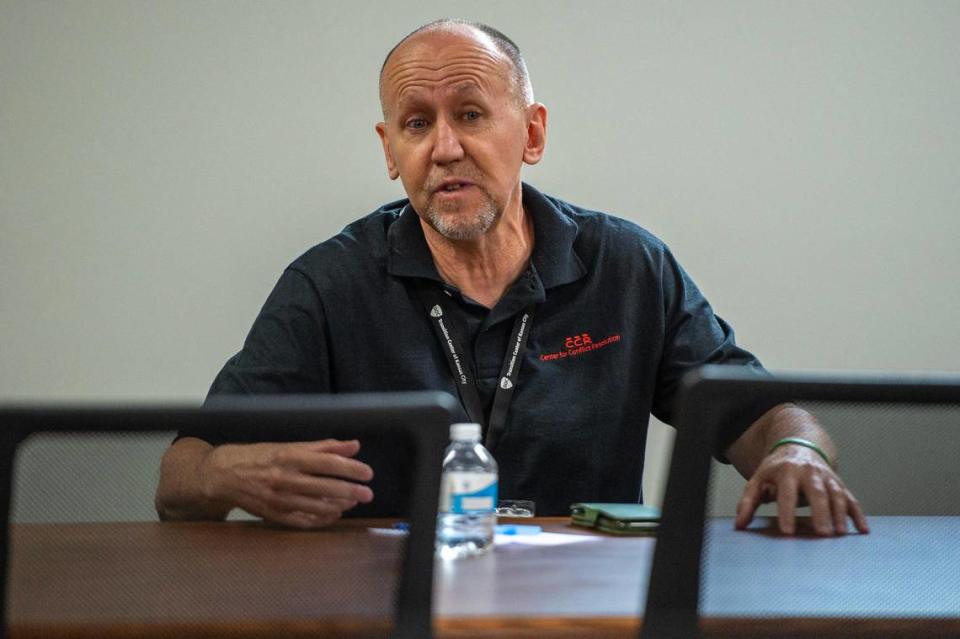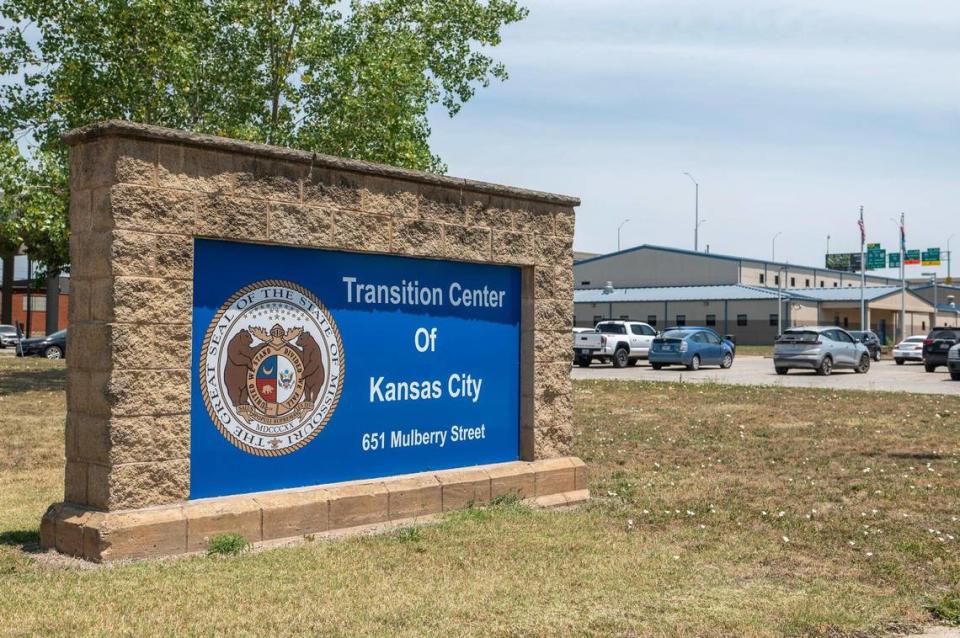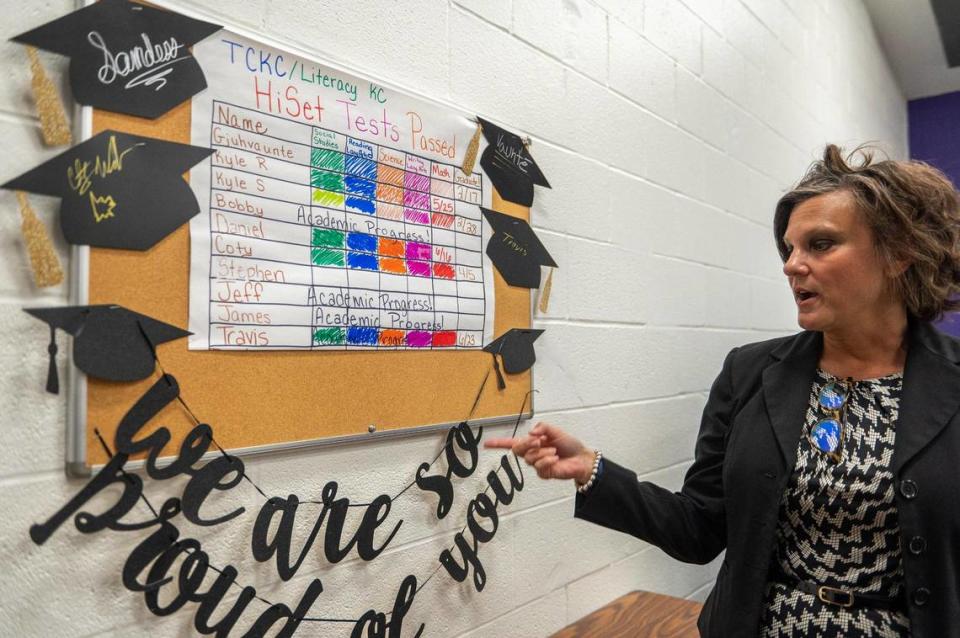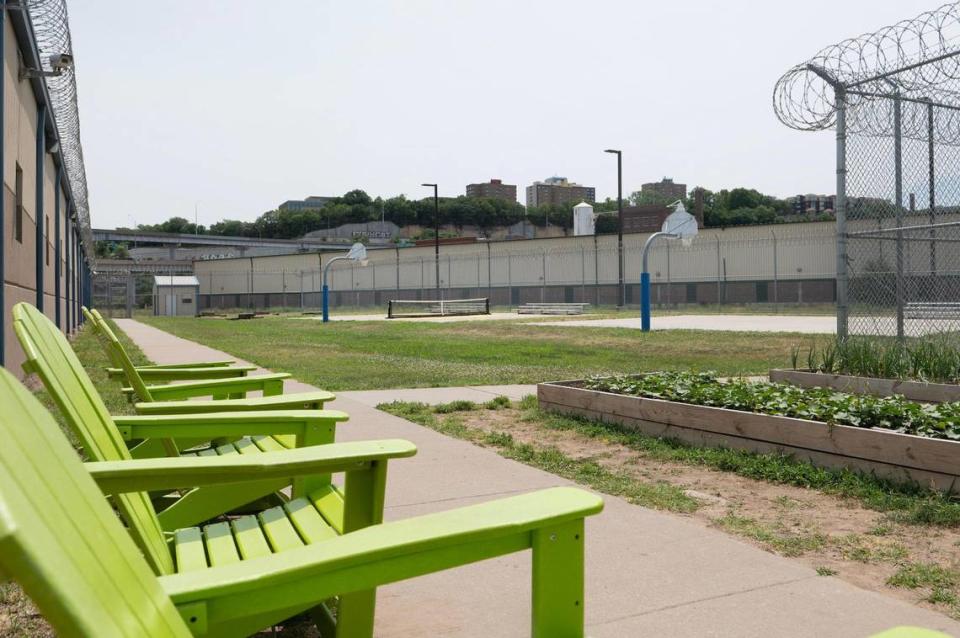Center in Kansas City aims to ‘transform what corrections looks like’ for Missouri, nation
Ervin Miles was raised by his grandparents in Kansas City and was angry that his father wasn’t around, especially when they died and his dad failed to step up.
As a young man, Miles wanted answers about why his life had unfolded the way it had, but those explanations didn’t materialize, which only made him angrier.
Growing up, he says, he did not have “anyone to show me the way.”
At 20, Miles was sent to prison for raping a minor.
Now 29, he has spent most of his adulthood in Missouri prisons, an often hostile environment with few support systems.
But in March, Miles was transferred to the Transition Center of Kansas City (TCKC), a recently opened Missouri Department of Corrections center which takes a different approach to residents getting ready to leave prison or who have recently been released — one where human dignity is prioritized.
Formerly a probation and parole facility and then a prison, the corrections department opened the center last year in the West Bottoms at 651 Mulberry Street. The site is one of only a handful of correctional facilities in the country that focuses on restorative justice and conflict resolution.
The concept was borne out of the idea that the department of corrections needs to do better, said TCKC superintendent Michelle Tippie, who has been with the department for more than 30 years.
“It was just about the way that we relate to the residents, the way that we prepare them, quite honestly, the way that we treat them in some regards,” Tippie said.
In better preparing residents for release, Tippie said the hope is that participants can lead successful lives and the center can “have an impact on the violence rate here in Kansas City.”
Anne Precythe, the department’s director, said the center was “the right thing to do.”
“This approach leads to better outcomes for the clients, for their families, for area employers and for the community as a whole,” she said.
Officials with the transition center looked to European-style prison management models and asked, “How do we get rid of this us versus them mentality that exists in typical prisons in the United States?” said Gregory Winship, who leads restorative justice programming at the facility through the Center for Conflict Resolution.

“The goal is that we can transform what corrections looks like, not only in Missouri, but hopefully in the United States,” he said.
The facility is supported by more than 50 community partners including the Center for Conflict Resolution that offer an array of services and resources for residents.
The corrections officers undergo many of the same trainings as residents.
“So everybody’s talking the same language, they get it, they understand, they know,” Tippie said. “It’s our staff thinking different, talking different, being different than what’s traditionally seen in the Department of Corrections.”
In some ways, the participants and the center parallel changes that have been unfolding in the West Bottoms: revitalization and renewal. Some residents have jobs at a nearby restaurant supply business and many participate in a weekly clean-up of a street they have adopted in the neighborhood.
There are currently 60 residents going through TCKC’s program. Generally, a little over half are on probation or parole and opt to stay at the center after losing a job or housing or running into other challenges that could jeopardize their freedom.
“Instead of the parole officer or probation officer revocating them back to prison, they could say, ‘Hey, why don’t you spend some time at TCKC to try to help to get back on your feet, take advantage of the community services that are there so we don’t have to go through a more drastic change of revocating you back to prison,’” Winship said.
Others come from prison and spend the last few months of their sentence at the center, which does not bar residents based on their past offense.
About 96% of the people who go to prison will be released, said Karen Pojmann, a spokeswoman with the Missouri Department of Corrections. Every year, about 13,000 people are discharged from state prisons in Missouri.
But about 46% wind up reincarcerated within five years after a new conviction or a parole or probation violation. Major factors in recidivism rates include reentry support like access to housing and employment, according to experts.
“Our job is to help them transform and get out in the community and live law-abiding lives,” Winship said.
Fifty-four people have graduated from TCKC’s program and none have re-offended in the past three months.
More longitudinal data is being collected by the University of Missouri-Kansas City, which got a National Science Foundation grant to study TCKC’s impact.

‘Headed in the right direction’
The center’s program has four phases: orientation, discovery, journey and transformation.
Miles is in phase two.
Since he arrived, he has completed two of the many job training programs the center offers.
“We want people to like what they do because we know that if they get into a career track that they’re happy with, then they’re more likely to stick with that,” said Helen Hurley, the regional program director for Connections To Success, which helps residents create a life plan and connects them to a mentor.
Miles graduated from Goodwill’s program which focuses on manufacturing and technology like 3D printing and KC Can Compost’s Green Corp program which prepares people for environmental positions. There are six participants in the session that started the first week of July, according to Bruce Holloway, the organization’s social resource coordinator.
He called the center’s approach “a little bit revolutionary.”
The programs also emphasize soft skills so residents can build confidence and learn about themselves in addition to acquiring job readiness skills.
Miles has learned a face tapping exercise to help relieve anxiety and shared what songs mean to him in music therapy sessions. He’s learned about the role of sleep and worrying in terms of his mental health and participated in an Earth Day clean up in the West Bottoms. Standing in the main corridor, he gives a big smile as he’s reminded that he won the title of Resident of the Month in April.
Off the brightly green hallway are two computer labs, six classrooms, a cafeteria, recreation room and medical office. Once a minimum security prison, the center was redesigned to feel more like a college campus, Tippie said. The prison closed in 2021 as the state’s incarcerated population decreased.
In April 2022, the space reopened with the more progressive mentality and in hopes of correcting issues that had been problematic when it was a prison. That’s why the medical office is staffed 24/7 and mental health services are available during business hours.
Dorms that once housed 16 people now have six beds. A communal space is set up to feel more like a living room. There’s also a washer and dryer and a phone. Winship said each of the dorms has different phone guidelines because the men are responsible for coming up with the rules. It’s a learning process, he said.

The center also has a library and an area for yoga and meditation. There’s also a room full of clothes for participants to select from since they do not have to wear uniforms and may need nicer clothing when they go to a job interview. The halls are plastered with encouraging messages like “Dream…believe...achieve…succeed” and a message board announcing when the next “good vibes” meeting will be held.
Though an outdoor rec yard is still encircled by razor wire left from the center’s prison days — which Tippie concedes is “not very therapeutic” — the area has colorful umbrellas for shade and a community garden with beds full of greens that get donated to NourishKC.
The residents have access to most areas and can earn passes to get time in the community beyond showing up for court dates and work.
One of the main differences Miles sees is with the staff. “They just do not care,” he said of the corrections officers at the prisons he was at throughout his sentence.
But at TCKC, “they pay attention a lot,” he said. “They push you as far as to be better, to do better, to make sure you’re making the right decisions.”
“A lot of people are institutionalized and a lot of people they isolate, so they help us to break out of that,” he added.
A self-proclaimed jack-of-all-trades, Miles is interested in plumbing, a skill he learned in prison, and loves to cut hair. Right now, he’s working as a grill cook at Corner Cafe in Riverside.
Sometimes, things are still a struggle. Miles said he can go back to feeling angry. But he tries to stay positive instead of returning down that road and making mistakes.
“I feel like I’m headed in the right direction,” he said.


 Yahoo Sports
Yahoo Sports 
